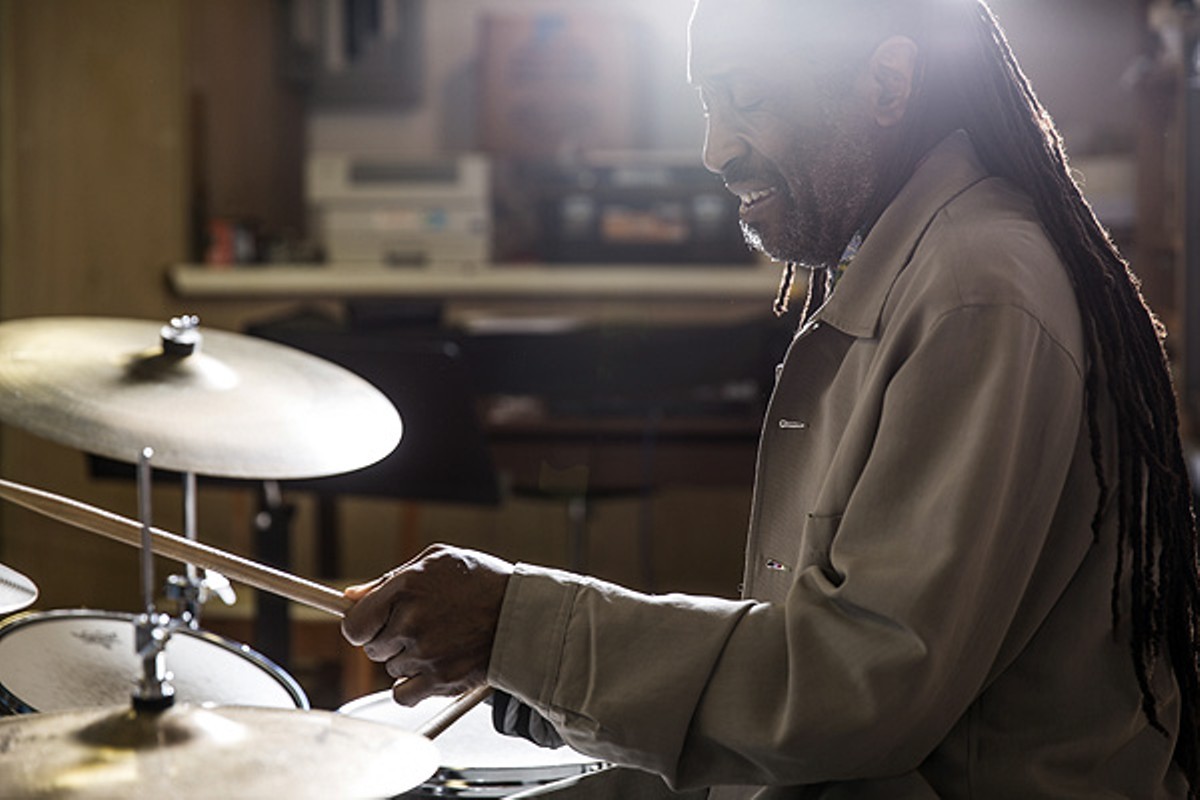Dr. Professor Leonard King Jr. laughs easily and has no problem talking your ear off, especially if you're genuinely interested in what he has to say. King talks with his hands a lot, and his eyes light up easily. He's earnestly professorial in a way no one who actually slogs through academia actually is, but that "Doctor Professor" handle was given to him by a former bandmate, not any school.
"I wasn't going to use it professionally, and I asked my ex-wife what she thought," King says. "She said, 'Leonard, somebody ask you a question about 1958, and you'll go all the way back to 1829, and an hour later you're still telling them the history of the subject at hand.' But I'm just doing something that comes natural to me."
Broadly speaking, jazz has been his saving grace and the main way he's made a living for decades. His CV could fill several pages, and the list of people he's worked with — Paquito D'Rivera, Al Green, Aretha Franklin, David Murray — would impress anyone. King emphasizes he didn't set out to be a jazz musician.
"I wanted to be an excellent musician," he says. "I wanted to be able to learn as much music as I could consume."
Thankfully, because Detroit is Detroit, King was able to develop a sense of multiple musical languages. At a young age, he was called on to play area social engagements and parties for area adults. "The first gig I did, in 1960, I got paid $10; that's about $160 in today's money, and I was 12 years old," he says. "I had a great reputation starting really early, to be able to play anything."
King was born in 1948 and raised in Southwest Detroit, in the Downriver community. He speaks with reverence of a predominantly black neighborhood that was economically diverse, and how "the adults out there really pooled their resources to be self-sufficient; they bartered among themselves." At the height of his career, from 1967 to the early 1970s, King's band, Leonard King and the Soul Messengers, played the top clubs and "everybody in the band was making 300 bucks a week."
Today, King travels the world playing gigs with James Carter. Things haven't been easy though, since the early '80s.
"The people who started running things here didn't value Detroit music," he says, so King has had to teach and hustle to get by. King oversees the Lyman Woodard Organization, which formed after local organist and Afro-Cuban band leader Lyman Woodard died in 2009. Like the people in his old neighborhood, and his father who owned a jukebox and vending business, King has released his own records, 21 of them in fact, on his own label, Uuquipleu.
Lyman Woodard is now negotiating to purchase its own building.
"I like wearing a proprietor's hat," King says. "I find that the older I get, you do things under other people's auspices and other people's money, and it's way too limiting."







